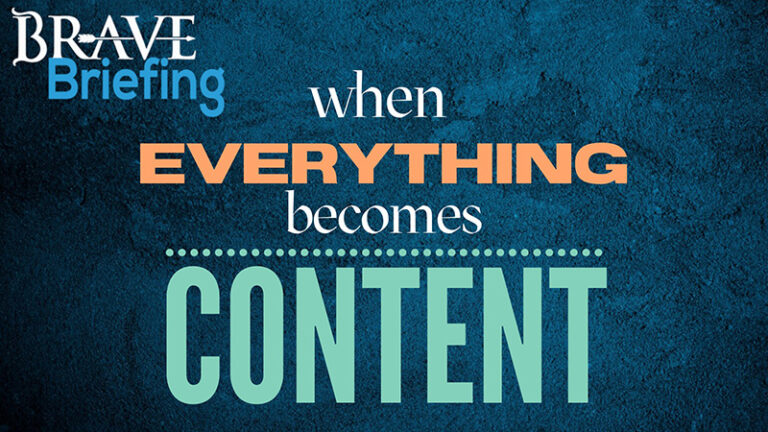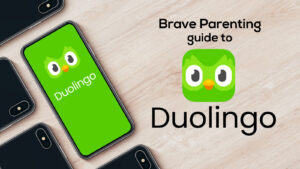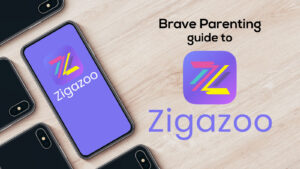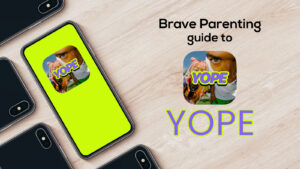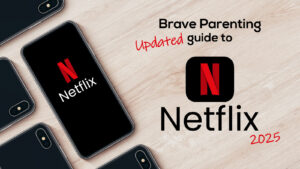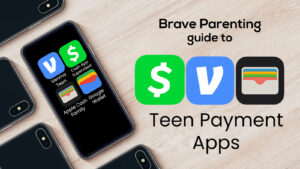How important is reading in an age of online media? Are literary skills still valuable now that we have AI? Shouldn’t children learn to use technology to access information instead of books?
The arguments made against reading beyond basic literacy generally stem from technological optimism:
- Videos, images, and voice interfaces (AI) are the dominant way people consume and process information
- Audio books and podcasts allow for multitasking, making silent reading inefficient
- AI chatbots can do the literary work of reading, writing, and summarizing
As usual, these arguments are driven by convenience. Technology promises convenient solutions to tasks that are hard, time-consuming, inefficient, or boring.
Reading is an easy target for technological domination.
Fighting against reading’s technological domination is deeply valuable because while convenience makes things easy, what is easy rarely develops our skills, shapes our character, or strengthens us.
Scrolling through TikTok videos or streaming a Netflix series is a passive, easy way to consume ideas. It’s conveniently available, and anyone can partake, as it requires little skill but provides little benefit.
Reading, on the other hand, demands attention and focus (hard), cultivates deep contemplation (hard), and often requires delayed gratification (hard). It takes practice and developed skill, but provides tremendous benefit.
Technology startups and app developers want to take the struggle out of reading. But we know: No one grows stronger without struggle.
Here are four reasons to reject tech-optimism’s domination of reading:
1. Inconvenience
Every convenience has a cost. Ordering your groceries online for pickup or having dinner delivered comes at a higher cost.
The same is true when it comes to reading. It is easier to hand a child an iPad loaded with a reading app than to drive to the library or sit and read aloud. For the cost of a monthly subscription ($13.99), apps like Vooks and Epic promise access to thousands of books. To many parents, this sounds like convenience and a win for reading.
These apps offer more than a digital version of books, however. They boast interactive engagement through animations, gamification, confetti, badges, and read streaks. This trains children to expect entertainment. Reading becomes about stimulation and rewards, not the quiet reflection of storytelling.
Even worse, convenient reading apps displace the parent. The sacred time of reading aloud together is replaced with personal screen time. Instead of reading being a vessel to connect and disciple, it becomes the vice of content consumption in isolation.
Yes, books cost money and libraries take time, but the true cost isn’t inconvenience. The cost is all that is lost when convenience drives parenting.
2. Slow and Active
In the fast-paced, short-form world of passive entertainment, it’s easy to believe that anything slow and active is inefficient and outdated. But the pace and engagement of reading are beneficial features, not flaws. Reading trains the mind for sustained focus, critical thinking, and abstract reasoning in ways that videos and memes cannot.
Learning and comprehending a new ideology or concept is more effective over 200 pages than in a 20-second video. Books provide sequential reasoning, character development, and a narrative storyline that enables the mind to critically process different worldviews. Short-form videos gain allegiance to proposed ideologies through emotionalism and repetition.
3. Vocabulary
While audio can support comprehension, it does not build decoding, fluency, and vocabulary skills. Hearing a new word in the context of a 30-second TikTok video (or audiobook while doing the dishes) results in fleeting recognition rather than long-term retention.
In contrast, encountering a new word in print, surrounded by context, with the ability to pause, reread, and reflect, deepens understanding. This mental engagement strengthens neural pathways, making it more likely the word will be remembered, understood, and eventually used in speech or writing.
4. Wisdom and Discernment
Just because AI can read, write, and summarize does not mean humans should stop these exercises. Passive consumers of information lack the critical thinking skills necessary to detect manipulation, bias, and fallacy, which is precisely what generative AI is known to produce. AI is a machine; it has neither a mind nor moral agency. It can produce information, but it cannot build wisdom.
God gave us His Word in written form, intended to be read. More than just words on a page, Scripture is alive and active, sharper than any two-edged sword (Heb 4:12), and profitable for teaching, reproof, correction, and training in righteousness (2 Tim 3:16). God’s word doesn’t produce wisdom by its sheer existence, it produces wisdom when it is read and obeyed.
The Brave Work of Raising Readers
Reading is not obsolete. Reading—and all that it encompasses—is an essential part of childhood that should not be discarded or displaced by technology.
In a culture that values ease and convenience at all costs, raising a reader is an act of resistance. It is a rebellious declaration that your child does not need a screen to learn, read, or relieve boredom. Even more, it demonstrates your willingness to do the hard work and pay the price of inconvenience so that your child doesn’t become a slave to passive consumption of algorithm-driven content.
Children who passively consume become adults who passively consume, and children who develop only basic literacy skills also become adults who passively consume.
The way to change the trajectory is to raise readers of books, not consumers of online content.
Neil Postman summarizes this concept of parental resistance in his concluding chapter of The Disappearance of Childhood.
“..Resistance entails conceiving of parenting as an act of rebellion against American culture….to insist that one’s children learn the discipline of delayed gratification, or modesty in their sexuality, or self-restraint in manners, language, and style is to place oneself in opposition to almost every social trend. Even further, to ensure that one’s children work hard at becoming literate is extraordinarily time-consuming and even expensive. But most rebellious of all is the attempt to control the media’s access to one’s children.”
Raising readers of books (versus consumers of content) is one way to control the media’s access to your children. Online media and technology is not neutral, especially regarding children.




